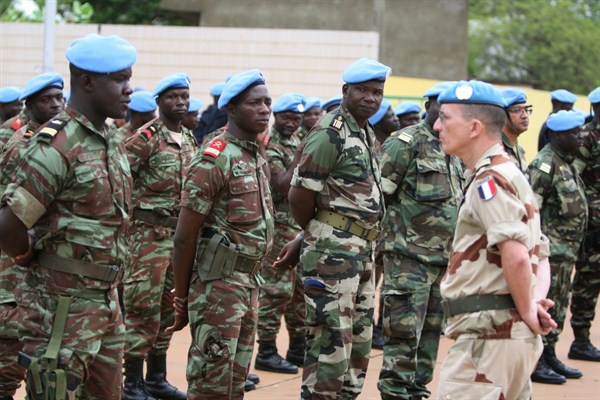There is a lot of talk at the United Nations about tailoring peace operations to address the specific needs of the countries and communities that they serve. But from the vantage of the Security Council, there are really only two types of peacekeeping missions: the ones the French like, and the ones the Americans and British like. The entire edifice of U.N. operations rests on a delicate network of bargains among Paris, London and Washington about how to balance these two groups of missions.
France has pushed for peacekeepers in a series of its former colonies including Cote d’Ivoire, Mali and the Central African Republic. For its part, the U.S. has relied on historical, humanitarian and political calculations to back large blue-helmet operations in Liberia, Darfur and South Sudan. The U.K. has also prioritized missions in its former colonial condominium of Sudan. These three permanent Security Council members have bartered long and hard in New York over how to divvy up troops and money among their preferred interventions.
When the British and Americans called for a mission to halt the conflict in Darfur in the mid-2000s, for example, France insisted that the U.N. should launch a parallel operation across the border in Chad. Paris and Washington have bickered for over a decade about the relative security requirements of Cote d’Ivoire and Liberia. The U.N. is finally winding up both of these West African deployments simultaneously. But the broader balance between French and Anglo-Saxon-backed missions is starting to look unsustainable.

